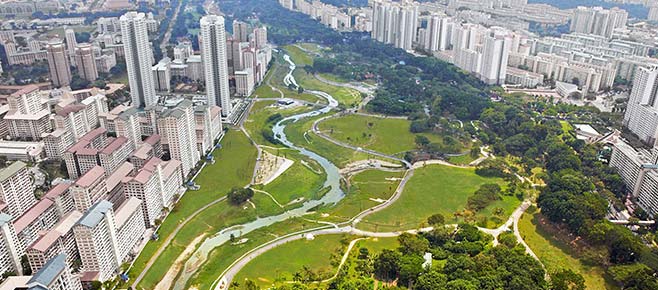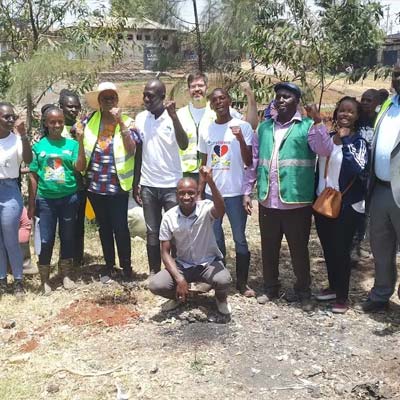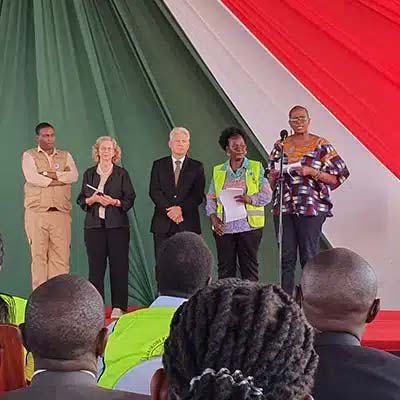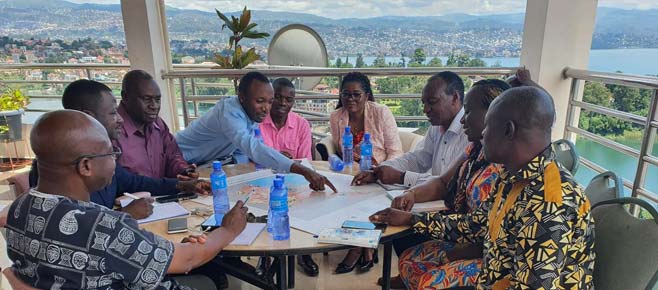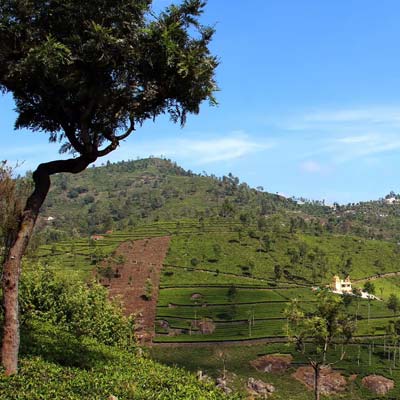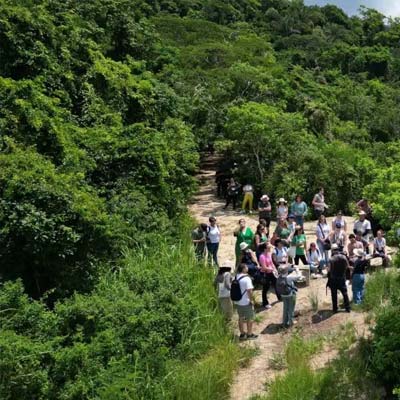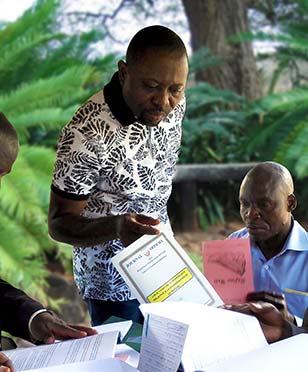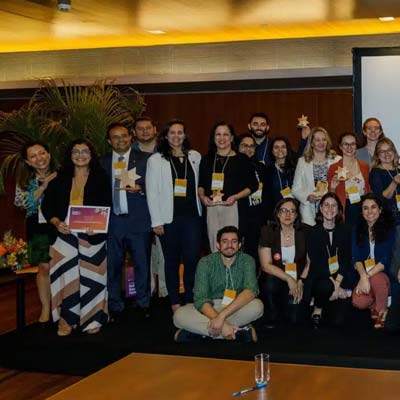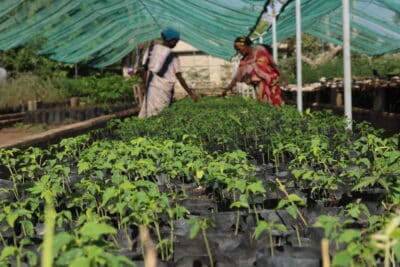Canada Awards Over CAD$28 Million to Scale Nature-Based Solutions for Climate Adaptation in African Cities
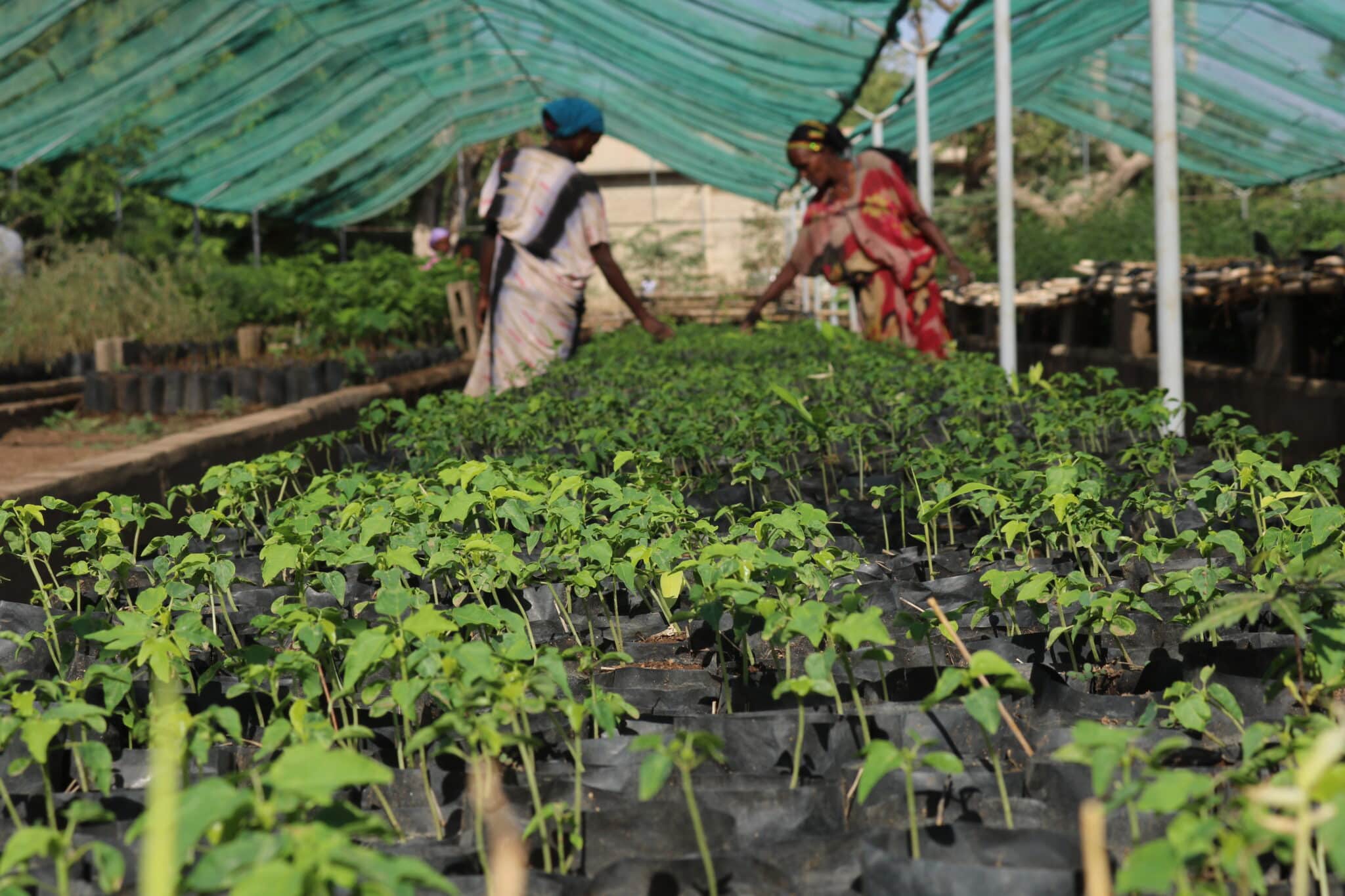
This award will directly benefit over two million people in high flood risk areas and indirectly benefit an estimated seven million residents in African cities.
This press release was originally posted by World Resources Institute.
Washington, D.C. (May 21, 2024) — The Global Affairs Canada program has awarded CAD$28.7 million (roughly US$21 million) to fund a three-year project that will advance climate adaptation in African cities through nature-based solutions.
The Scaling Urban-Nature-Based Solutions for Climate Adaptation in Sub-Saharan Africa (SUNCASA) project is jointly managed by the International Institute for Sustainable development (IISD) and the World Resources Institute (WRI), with support from Cities4Forests, and guided by a wide array of local policymakers and stakeholders. This project will implement watershed restoration, urban tree planting, and conservation actions in Dire Dawa, Ethiopia; Kigali, Rwanda; and Johannesburg, South Africa. These actions will reduce climate-fueled flood risks, increase access to green space, improve gender equity, and support biodiversity for over two million people.
“Africa’s cities are the fastest growing in the world. Yet, half of these urban residents are living in informal settlements and are dangerously threatened by climate risks from droughts, floods and extreme heat,” said Ani Dasgupta, President and CEO of the World Resources Institute. “To address these challenges, we must harness the power of nature — trees and other forms of ‘green infrastructure’ that can clean and cool the air, build flood resilience, and improve people’s health and well-being. Canada’s Partnering for Climate Initiative will allow IISD and WRI to work with cities across the continent to mobilize political support, deliver technical assistance, and unlock finance, effectively streamlining the process to scale up nature-based solutions to support vulnerable communities.”
Specific activities were identified through engagements with key stakeholders in each city to identify critical resilience challenges and develop high-impact solutions. This approach aims to scale nature-based solutions across each city and ensure the greatest possible benefit for the most people, particularly in vulnerable communities. “Together, we are pleased to support the cities of Johannesburg, Dire Dawa, and Kigali in advancing their climate change adaptation, biodiversity conservation, and livelihood priorities through gender-responsive nature-based solutions,” said the Honourable Ahmed Hussen, Canadian Minister of International Development.
“Despite their wide-ranging benefits for people and the planet, nature-based solutions are not being scaled up enough to fulfill their potential,” said Patricia Fuller, Co-CEO of IISD. “SUNCASA is a tremendous opportunity to advance this cause. IISD is pleased to be applying our experience with nature-based solutions to the management of this project in partnership with WRI, and we look forward to working with our wide array of local partners to implement it for the benefit of communities and ecosystems in sub-Saharan Africa.”
The SUNCASA project will take a unique approach in each city to address the most pressing challenges. This includes rehabilitating the Dechatu Catchment in Dire Dawa to address water stress, removing invasive species from the Jukskei River Catchment in Johannesburg to reduce flooding and leading restoration efforts in Kigali to protect agricultural lands. Regardless of the approach, these cities are united in employing equitable nature-based solutions to advance the safety and well-being of their residents.
“As Mayor of the Dire Dawa Administration, it is my priority to rally political support for solutions that help our administration address citizens’ vulnerability to climate change-related disasters like rapid onset floods,” said H.E. Kedir Juhar, Mayor of Dire Dawa, Ethiopia. “The Dire Dawa Administration welcomes the recent announcement from Global Affairs Canada regarding new funding to support locally led nature-based solutions for the rehabilitation of the Awash River Basin’s Eastern Catchment. This investment means more women and youth at the forefront of our climate adaptation measures, helping to boost water security not only in Dire Dawa but in our neighboring cities as well.”
“Flood protection is a critical aspect of the City of Johannesburg’s Water Security Strategy,” said Kabelo Gwamanda, Mayor of Johannesburg. “Exacerbated by climate change and urbanization, flooding poses a significant risk to lives, livelihoods and infrastructure, causing devastation and disruption on a massive scale. Through the protection and restoration of ecosystems, we can address flood risk across the city while enhancing water quality, preserving critical habitats, and safeguarding ecological integrity for generations to come. This is where the SUNCASA project comes into play, as it will implement the nature-based solutions outlined in our strategy.”
“The City of Kigali welcomes the recent commitment from the Government of Canada to support the city’s vulnerable communities with the resources they need to increase their climate resilience through Nature-Based Solutions for watershed restoration,” said Kigali’s Lord Mayor Samuel Dusengiyumva. “We look forward to advancing this work with our partners, in alignment with Kigali’s ambitious green development goals, and strengthening communities against climate impacts.”
Learn more about the project from the Government of Canada’s media release, as well as the international commitments that underpin this project.
About IISD
The International Institute for Sustainable Development (IISD) is an award-winning independent think tank working to accelerate solutions for a stable climate, sustainable resource management, and fair economies. Our work inspires better decisions and sparks meaningful action to help people and the planet thrive. We shine a light on what can be achieved when governments, businesses, non-profits, and communities come together. IISD’s staff of more than 200 experts come from across the globe and from many disciplines. With offices in Winnipeg, Geneva, Ottawa, and Toronto, our work affects lives in nearly 100 countries. Learn more at iisd.org
About World Resources Institute
WRI is a trusted partner for change. Using research-based approaches, we work globally and in focus countries to meet people’s essential needs; to protect and restore nature; and to stabilize the climate and build resilient communities. We aim to fundamentally transform the way the world produces and uses food and energy and designs its cities to create a better future for all. Founded in 1982, WRI has nearly 2,000 staff around the world, with country offices in Brazil, China, Colombia, India, Indonesia, Mexico and the United States and regional offices in Africa and Europe. More information at www.wri.org or on Twitter @WorldResources.
